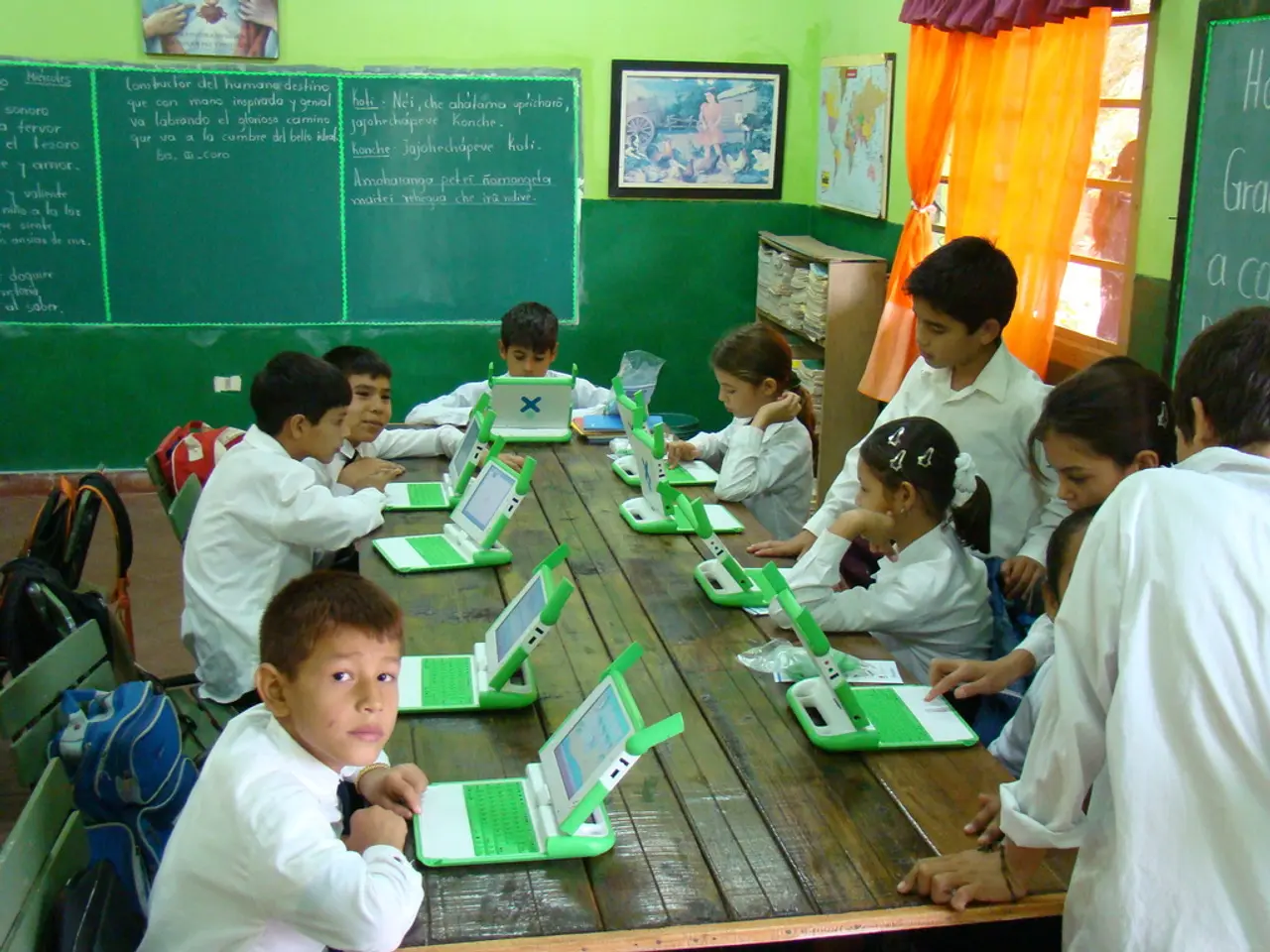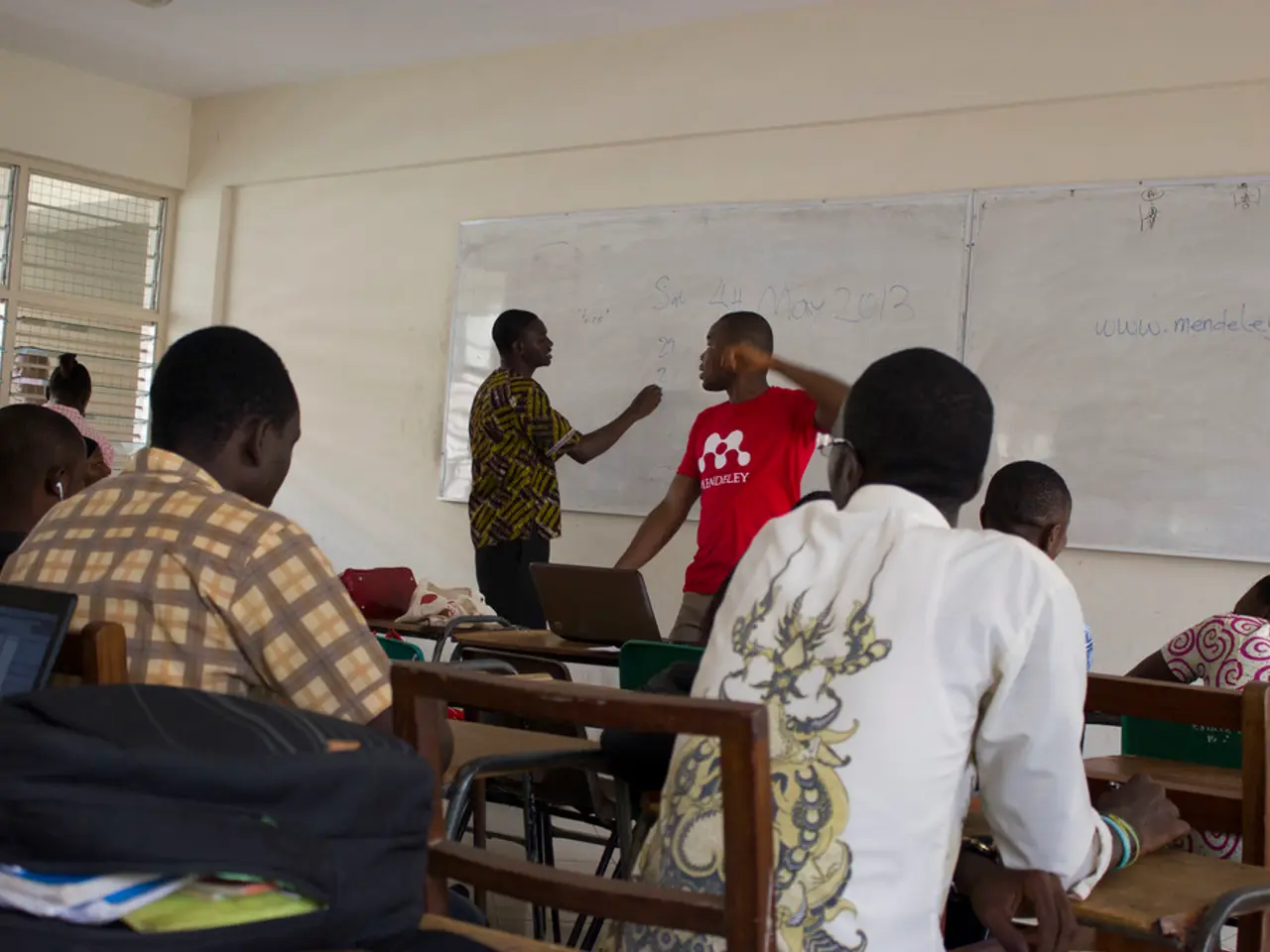Unveiling the Hidden Digital Existence of Ten-Year-Olds
In a recent study, Kaspersky Lab has highlighted a growing concern about the divide between parents attempting to protect their children from harmful online content and tech-savvy youngsters seeking to bypass these protections. The research reveals that a considerable number of ten-year-olds are exposed to content containing something violent (28%) or bad language (42%), with a significant percentage (11%) even encountering pornographic materials.
The report underscores the need for parents to be involved in their children's online activities to protect them from potential risks. It suggests that parents should be proactive in setting guidelines and rules for their children's internet use, and emphasises the importance of open discussions and agreement on online safety from an early age.
Kaspersky Lab's research offers several strategies to help parents protect children from age-inappropriate content and online risks. These strategies include monitoring children's online activity and location, using web filters and app usage monitoring, setting screen time limits, interactive access requests, and receiving alerts about device status.
By employing these strategies, parents can leverage Kaspersky Safe Kids parental controls to establish technological blocks while fostering digital responsibility. This approach aims to protect children from online risks while promoting safe and responsible internet behaviour.
Moreover, the report urges parents to create an environment where discussions about online safety are open from an early age. It suggests that parents should take an active and ongoing role in mentoring their children online, discussing the risks and dangers to define what constitutes safe, responsible behaviour.
The study also indicates that by the age of thirteen, 70% of children believe they can hide their online activities from parents, and one in four children who have rules to keep them safe online admit to logging onto the internet at a friend's house to get around these. This highlights the inquisitive nature of tech-savvy youngsters intent on finding ways to do what they want online, despite potential risks.
The study also reveals that approximately one-third of ten-year-olds own smartphones, and children as young as ten own tablets. These findings underscore the importance of parents taking immediate action to protect their children online.
In conclusion, Kaspersky Lab's study indicates that there is a growing issue of children being at risk on the internet, as young as five years old. It emphasises the need for parents to be vigilant, proactive, and engaged in their children's online lives, using the strategies outlined in Kaspersky Lab research to ensure their safety and promote responsible digital behaviour.
- To combat the increasing online risks faced by children, it's essential to emphasize education-and-self-development in understanding the implications of cybersecurity from an early age.
- Parenting, in today's tech-driven world, must extend to the cyber realm, ensuring science is used to create a safe and healthy-and-wellness environment for children online.
- Technology's rapid advancement necessitates not only the implementation of protective measures like web filters and parental controls (Kaspersky Safe Kids) but also open discussions about online safety from the outset, fostering a culture of education-and-self-development and responsible digital behavior in children.




